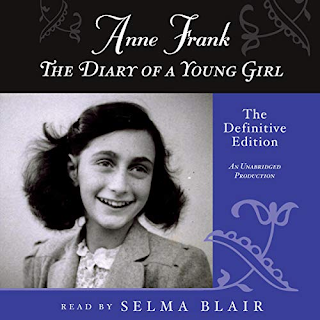Have you ever found writing difficult in times of worldwide chaos? I doubt any of us is old enough to have been putting serious pencil to paper during World War II. I am among BRP's eldest contributors, and my first attempts at childish poetry came at the very end of that war (or perhaps shortly after it was over). On the heels of WW2 came the Korean Police Action followed by the civil war in Viet Nam that eventually involved military personnel from other countries. And along came Iraq and Afghanistan wars. While none of the more recent military actions reached the magnitude of the Second World War, all have impacted people around the globe.
Then Covid-19 rode into the world with 2020 and introduced a global pandemic that has infected more than 767 million people and snuffed out 6,935,889 million lives as of 6 a.m. on May 31, 2023, according to WHO. While this huge death toll pales compared to the deaths of an estimated 75 - 200 million people in Western Eurasia and North Africa during the bubonic plague pandemic between 1346 and 1353, it must be remembered that modern medical care was unknown in the medieval world. Furthermore, available statistics on the loss of human life during the bubonic plague pandemic leave a lot to be desired in the accuracy department.
Why do I mention such catastrophic events? They exemplify varying degrees of global stress, and global stress affects writers, as well as musicians, sculptors, painters, and artists in other fields. I realize my own ability to focus completely on writing has suffered significantly since the pandemic hit, and it's just beginning to improve after my own bout of Covid-19 well over a year ago. But that's not the only interfering factor.
Age also takes a toll. We older ones often lack the drive we took for granted when we were younger. However, we (hopefully) possess something we did not have in the past—the wisdom and understanding than come only from our years of living.
For me, my to-do list of novels-in-waiting continues to grow; however, my ability to spend long hours bent over my keyboard, committing words to my hard drive, keeps shrinking. Aches, pains, health issues, and fatigue all demand attention. Not only are distractions more difficult to ignore, but the difficulties created by the long lockdown due to the pandemic have segued into a plethora of worldwide stressors. These range from economic woes and huge cost of living increases that cripple so many of us financially to a whole new group of supply chain issues. Other problems include assaults, intentional murders, random shootings, global discontent, and an unprecedented lack of cooperation in almost all areas of life.
Are you affected by the violence and uncertainty of today's world? Has it infringed on your ability to concentrate on writing? Do you look for opportunities to incorporate the effect the world's chaos on your characters? Do those characters work to overcome the negativity all around them and forge a positive path for themselves and their families?
While writing this article, I found that German Jewess Annelies Marie Frank (Anne Frank) kept coming to mind. Recording her experiences, her fears, and her hopes during two years of hiding from the Nazis during the Second World War, young Anne kept a diary. Her expressed hopes for the future included writing a book about her experiences during the war. Before she could realize that ambition, she and her family were located by the Nazis, and she and here sister died, apparently of typhus, in Bergen-Belsen concentration camp. Anne was 15 years old. However, hidden in the home that had once served as their safe house, her diary survived and became the basis of a biography of her life and the subject of a movie. Her hope of writing a book about her war experiences was ultimately realized, albeit posthumously.
"It's difficult in times like these: ideals, dreams and cherished hopes rise within us, only to be crushed by grim reality. It's a wonder I haven't abandoned all my ideals, they seem so absurd and impractical. Yet I cling to them because I still believe, in spite of everything, that people are truly good at heart."
quoted from her diary by Dr. Howard Markel, writer of a monthly news column for PBS NewsHour
The quality of Anne Frank's diary writing (as exemplified in the English translation) strongly suggests that she could have become an exceptional journalist and novelist if she had survived long enough to live her dream. She didn't. But she did live long enough to pen the above words for us, to encourage us to use our difficult times to reach out to others with our writing, to believe in the goodness of enough people to hope they find courage in our words spoken through our stories' characters, as well as in our other writings.
I believe the pen is still mightier than the sword. What do you think?
 |
Editor Linda Lane has returned to her first love—writing. Categorized as women's fiction, her exciting, quick-paced novels contain elements of romance, mystery, and thrillers. Her first two books are now available as e-books and paperbacks on Amazon.com. Type in The Accounting by L.S. Lane and/or Tormented Tango by L.S. Lane to see them. You may contact her through her website: LSLaneBooks.com. |





Comments
Post a Comment
The Blood-Red Pencil -- sharp and pointed advice on editing and writing. If a glitch is preventing you from commenting, visit our Facebook page and drop your wise words there: Blood-Red Pencil on Facebook